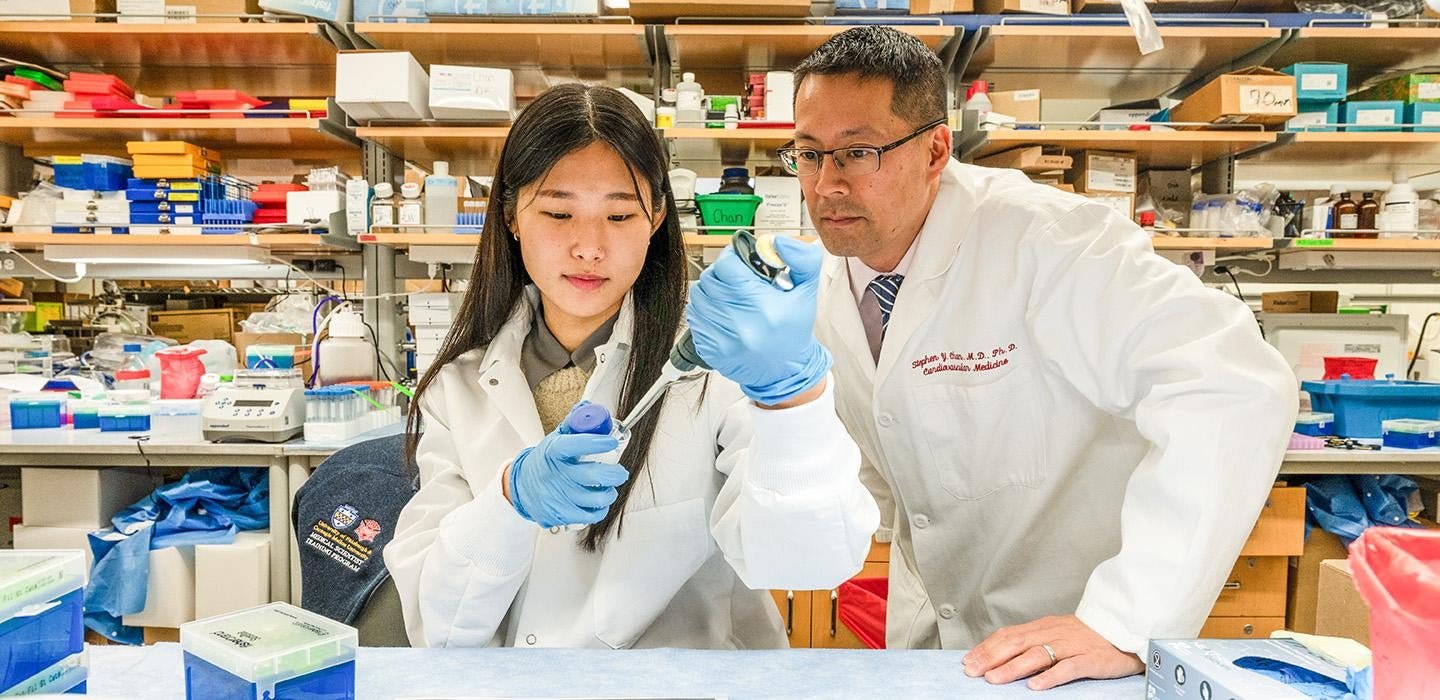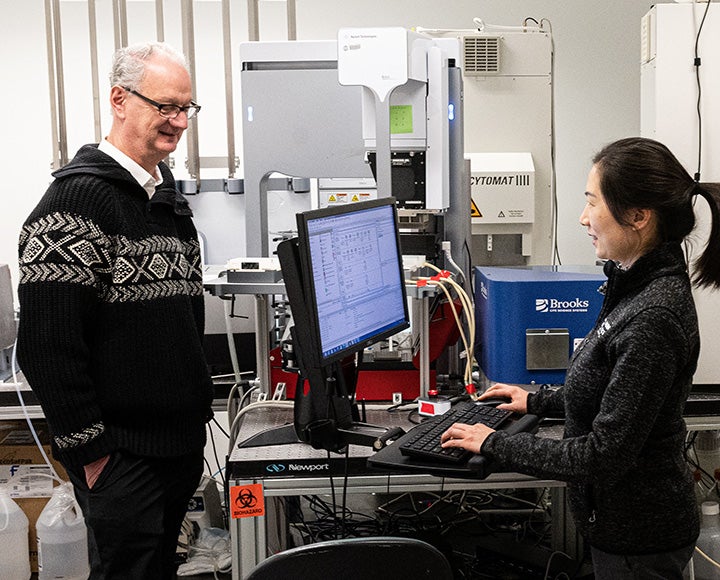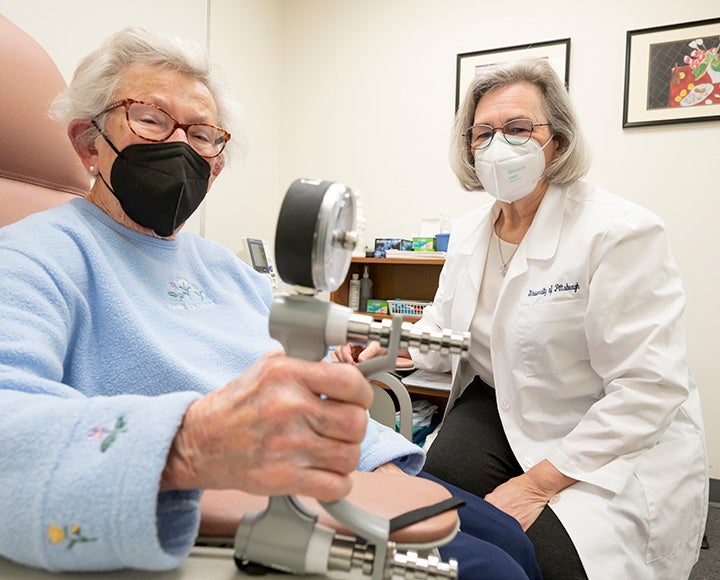
Subscribe to Pittwire Today
Get the most interesting and important stories from the University of Pittsburgh.A $14.3 million commitment from the WoodNext Foundation will expand research at the University of Pittsburgh to identify causes of inflammation that lead to heart disease and dementia, two of the most costly, deadly and pervasive health problems in the United States.
“This gift will bring together three world-class research teams, disrupting the traditional path of single disease research,” said Anantha Shekhar, the John and Gertrude Petersen Dean of the School of Medicine and senior vice chancellor for the health sciences at Pitt. “The transformational contribution from the WoodNext Foundation will advance biomedical, cardiovascular and neuroscience research through collaboration and innovation.”
Previous research has shown a close link between inflammatory processes and chronic diseases of aging, including cardiovascular disease and neurodegenerative conditions. However, studies have yet to provide a clear understanding of how inflammation simultaneously drives these deadly conditions, according to Stephen Chan, Vitalant Chair in Vascular Medicine and director of Pitt’s Vascular Medicine Institute.
“This funding provides a unique opportunity to learn how inflammation connects the cardiovascular and neurological systems,” said Chan, who will serve as principal investigator of the interdisciplinary team. “We will leverage our discoveries to identify molecules in the body that could be targeted by drugs and develop a novel generation of medicines that prevent, treat or even reverse these disease processes and improve the lives of patients worldwide.”
Discoveries will be pursued through a “research pod” design involving a highly integrated investigative team with expertise across multiple scientific disciplines, methods and technology platforms. The pod will focus on three areas of study:
One team will use gene-editing tools and genome-wide association studies to discover the causes of inflammation that may connect heart disease and dementia. This work is key to the project’s goal of identifying specific proteins that drive neurodegeneration. Researchers will leverage existing data from Pitt’s Alzheimer’s Disease Research Center to develop an algorithm that predicts dementia risk based on genetic and clinical parameters. Chan will lead this team.
Building upon the genomic research, a second team led by Toren Finkel, Distinguished Professor of Medicine, G. Nicholas Beckwith III and Dorothy B. Beckwith Chair in Translational Medicine, and director of the Aging Institute at the University of Pittsburgh and UPMC, will use novel technology to pinpoint effective compounds that target proteins considered “undruggable” with standard approaches. The team expects to identify drugs to prevent or reverse dementia.
A third team will launch a first-ever clinical trial to see if an immune regulator can reduce the deleterious aspects of aging in older but otherwise healthy adults. Led by Anne Newman, Distinguished Professor of Epidemiology, clinical director of the Aging Institute and director of the Center for Aging and Public Health, this team will evaluate whether a monoclonal antibody that potently reduces inflammation can lead to improved cardiovascular and cognitive function.
Chan says new treatments are urgently needed for cardiovascular disease, the leading cause of death in the United States, and dementia, which will affect 9 million Americans aged 65 and older by 2030. Costs associated with health care and lost productivity for both conditions are staggering, and despite extraordinary financial investment, current therapies for dementia and cardiovascular disease remain inadequate.
The WoodNext Foundation gift will also create an entrepreneur-in-residence position to work with faculty scientists and Pitt’s Innovation Institute on therapeutic commercialization. Further, the support will fund an Innovation Board of Advisors with ties to the biotech industry and investment community.
This recent gift builds upon $6.3 million in other funding from the WoodNext Foundation to the University of Pittsburgh for a total of $20.6 million in philanthropic support. Those contributions fund leading-edge research on the genetic underpinnings of sleep dysfunction, as researchers seek novel treatments, including pharmaceuticals and brain stimulation.
“The WoodNext Foundation's mission is to remove obstacles, such as debilitating diseases, that stand between individuals and a fulfilling life,” said Nancy Chan, executive director of the WoodNext Foundation, the philanthropy organization of tech innovator and Roku CEO/founder Anthony Wood and his wife, Susan. “We look forward to the advances that the Pitt researchers will make in the fields of dementia and cardiovascular disease through this collaborative interdisciplinary project.”
— Mark Nootbaar, photography by Tom Altany and Aimee Obidzinski




